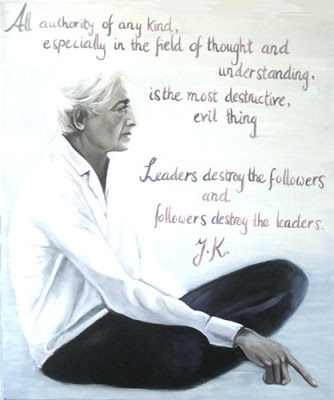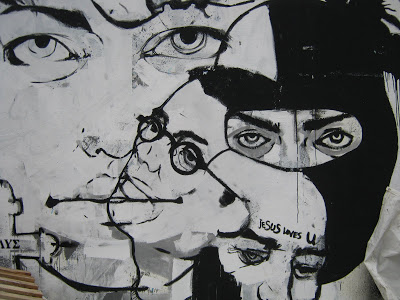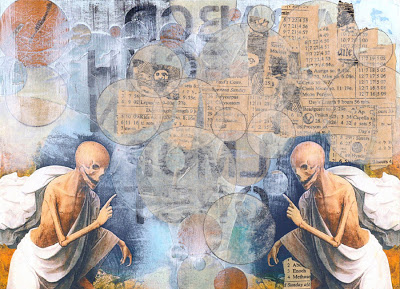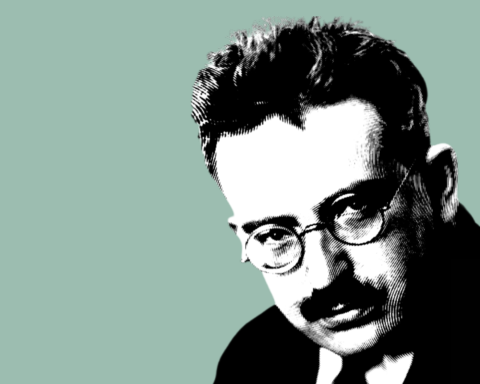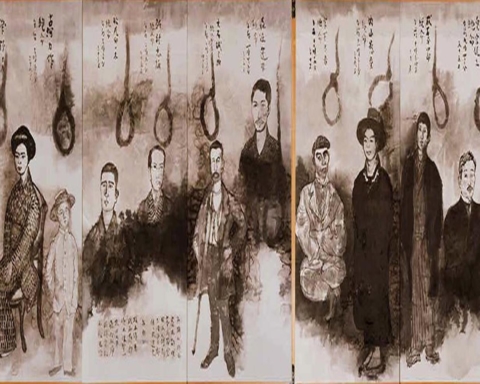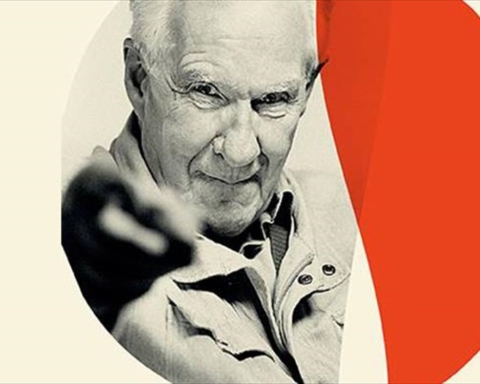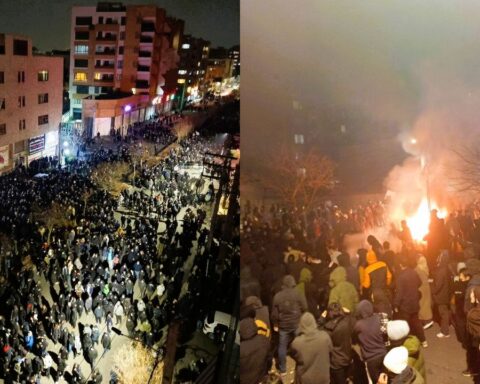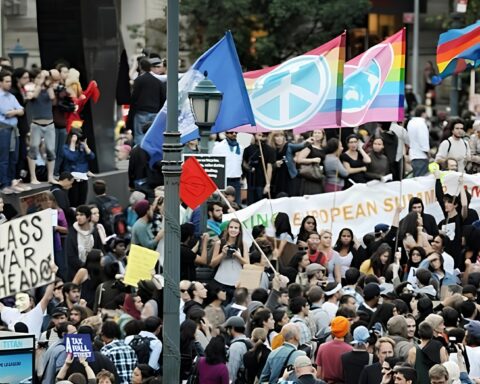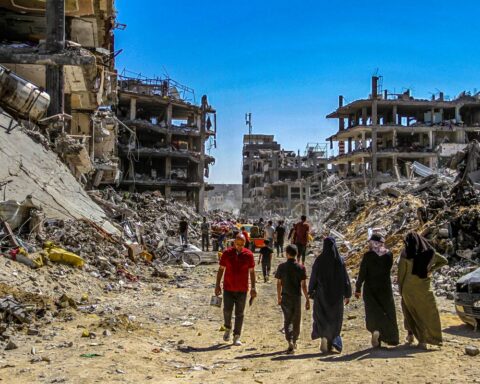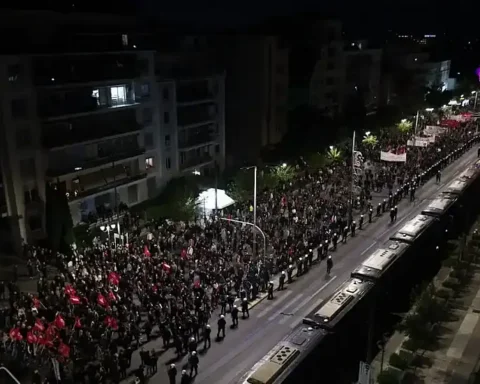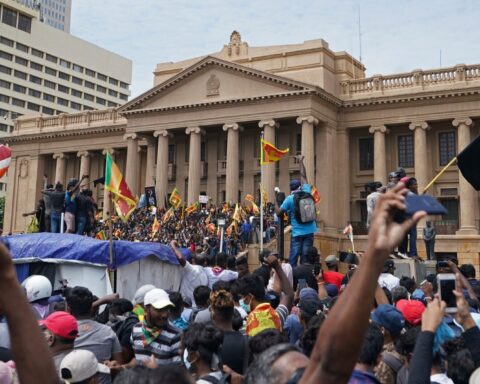“All authority of any kind, especially in the field of thought and understanding, is the most destructive, evil thing. Leaders destroy the followers and followers destroy the leaders. You have to be your own teacher and your own disciple. You have to question everything that man has accepted as valuable, as necessary.” — J. Krishnamurti, Freedom from the Known
“Having realized that we can depend on no outside authority in bringing about a total revolution within the structure of our own psyche, there is the immensely greater difficulty of rejecting our own inward authority, the authority of our own particular little experiences and accumulated opinions, knowledge, ideas and ideals. You had an experience yesterday which taught you something and what it taught you becomes a new authority — and that authority of yesterday is as destructive as the authority of a thousand years. To understand ourselves needs no authority either of yesterday or of a thousand years because we are living things, always moving, flowing, never resting. When we look at ourselves with the dead authority of yesterday we will fail to understand the living movement and the beauty and quality of that movement.
“To be free of all authority, of your own and that of another, is to die to everything of yesterday, so that your mind is always fresh, always young, innocent, full of vigor and passion. It is only in that state that one learns and observes. And for this a great deal of awareness is required, actual awareness of what is going on inside yourself, without correcting it or telling it what it should or should not be, because the moment you correct it you have established another authority, a censor.” — J. Krishnamurti, Freedom from the Known
When I was asked to contribute an article to this special “spirituality” issue of Green Anarchy, I found myself at a rare, uncharacteristic loss for words. Sure, I could regurgitate all the obvious critiques of monotheism, polytheism and religion in general, but it’s unlikely that I’d be introducing any new concepts to this rather boring and tedious discourse (Does any anarchist really need to be convinced that authoritarianism lies at the root of all religious paradigms?). I also (briefly) considered scrutinizing the reactionary, uncritical embracing of Neo-paganism and Eastern cosmological designs (what I call the “substitution faiths”) by so many self-professed anarchists, but again, I wasn’t able to muster up any sincere enthusiasm for such a dull, fruitless undertaking (After all, the elevation of mythological forms and structures to the level of eternal verities is appealing only to those who fear the swirling, magnificent mystery of chaos and seek to impose an illusory “order” on it; those who are afflicted with a pathological need for a “belief system” to quell their own nagging insecurities).
It was tempting as well to assail the metaphysics of the Left (dialectical materialism, reason, logic, science, progress), but the pastime of “left-bashing” is starting to become a little redundant in the pages of GA and I’m loathe to give this terminally-ill worldview any more importance than it merits. The blunt truth is that I find nearly all communication about “spirituality” to be farcical, supernatural rubbish, not to mention highly pretentious; theology is about as useful to me as a book of soggy matches, and morality nothing more than a covenant to stay deaf, dumb and paralyzed — a social prohibition on instinctual expressions and a voluntary acceptance of mutilated freedom. I similarly deplore all notions of humyn “saintliness” and “perfection” (political, ethical or otherwise), and the cloistering of intelligence within transcendental castles (or monasteries) of sand.
Yet, against this background of irreverent disdain for all unearthly creeds and ethereal conjecture, I’ve occasionally encountered “spiritual” writings that have inspired me in my own quest for personal liberation. For instance, the Taoist reflections of Lao Tzu and Chuang Tzu (which at times seem to be taking into account domestication and the civilizing process itself), or some of the more “primitive” (pre-religious) versions of Zen (which include refreshing elements of foolishness, buffoonery and absurdist qualities in their speculations on consciousness). There are also certain Western intellectual heretics — like William Blake, Percy Shelley, the French amoralist Jean Genet, and the profoundly underrated Dadaist philosopher, Tristan Tzara — who have “spiritually” enriched my existence through their radically subjective takes on liberty and autonomy.
But in my (sometimes) humble opinion, the “spiritual” thinker who has the most relevance to anarchist theory (by virtue of the fact that he was an anarchist!) is J. Krishnamurti, an iconoclastic “anti-guru” from India who devoted his life to burying the putrid corpse of religion, superstitious spiritualism, and every other mystification that impairs the experience of being alive.
A Disturber Of The Peace
“War is the spectacular and bloody projection of our everyday living. We precipitate war out of our daily lives; and without a transformation in ourselves, there are bound to be national and racial antagonisms, the childish quarreling over ideologies, the multiplication of soldiers, the saluting of flags, and all the many brutalities that go to create organized murder. Education throughout the world has failed, it has produced mounting destruction and misery. Governments are training the young to be the efficient soldiers and technicians they need; regimentation and prejudice are being cultivated and enforced. Taking these facts into consideration, we have to inquire into the meaning of existence and the significance and purpose of our lives. We have to discover the beneficent ways of creating a new environment; for environment can make the child a brute, an unfeeling specialist, or help him to become a sensitive, intelligent human being. We have to create a world of no government which is radically different, which is not based on nationalism, on ideologies, on force.” — J. Krishnamurti
Jiddu (“J.”) Krishnamurti (1895-1986) was a unique figure in twentieth century philosophical thought. He belonged to no religion, sect, or country, nor did he subscribe to any school of political or ideological thought. Instead, he stated that these are the very factors that divide us from one another and bring about personal and social conflict, ubiquitous feelings of disconnection and ultimately, the ghastly ordeal of war. The century in which Krishnamurti lived saw two world wars, continuous political, ethnic and religious violence, mass murder on an unparalleled scale, the physical annihilation of the biosphere and the development and proliferation of genocidal regimes throughout the world. In virtually every public talk he gave, Krishnamurti addressed this global crisis, calling on his listeners to give serious attention to the psychological structures that breed violence, conformity, obedience, exploitation, stupidity, slavish tendencies, and wretchedness in their lives.
Unlike most anarchists who probe these desperate circumstances from entirely economistic or materialist standpoints, Krishnamurti considered our planetary predicament to be commensurate with a more grievous and buried (as in “un-discussed”) crisis of consciousness. From his perspective, the settlement of this quandary relied on a pitiless inspection of our internal environment; in other words, searching out, locating and overthrowing the symbolic shackles, the blighted “moral frameworks”, and the ideological strongholds that fester beneath the outer world of appearances; the conceptual and ideational enslavers of perception that have brought about a generalized poisoning of consciousness, one that lies at the root of the despotic society we inhabit.
Krishnamurti was not interested in providing his “audience” with more ritualized, schematic and occultist systems around which to base their lives. He left behind no “sacred” books or dogmatic tenets, no ceremonial formalities or “special prayers” for those who sought to turn him into their “saviour”. On the contrary, Krishnamurti resolutely denied the validity of all doctrinal authority and “spiritual” conventionalism and was unwavering in his conviction that all conditioned belief systems and ideologies inevitably result in a world of dimmed, compressed consciousness — a deformed perception full of restrictions, of walls blocking the way to freedom. And always, his central preoccupation remained authority and the ossification of consciousness that results from our acceptance of it.
Krishnamurti never spoke in abstractions and offered no consoling fundamental principle of “transcendence” for those sick at heart with the misery and hardships of this world; more accurately, he insisted that the “answer” to humyn suffering (war, alienation, political oppression, the myriad varieties of poverty) was not to be found in some fantastical hereafter, but in the here and now. These aren’t problems for spiritual “specialists” or externalized superhuman “deities” to solve, but rather, an accumulated heritage of cultural ignorance and conformity that necessitates the active willingness of all who truly desire freedom to keep their eyes and minds open in the midst of all the tyranny, carnage and heartlessness around them; to engage in an unflinchingly honest examination of all the conventional answers, all the conventional routines, and all the conventional games our degraded, socialized minds reenact daily, as if on auto-pilot.
Igniting the Flame of Awareness
“To revolt within society in order to make it a little better, to bring about certain reforms, is like the revolt of prisoners to improve their life within the prison walls; and such revolt is no revolt at all, it is just mutiny. Do you see the difference? Revolt within society is like the mutiny of prisoners who want better food, better treatment within the prison; but revolt born of understanding is an individual breaking away from society, and that is creative revolution.
“Now, if you as an individual break away from society, is that action motivated by ambition? If it is, then you have not broken away at all, you are still within the prison, because the very basis of society is ambition, acquisitiveness, greed. But if you understand all that and bring about a revolution in your own heart and mind, then you are no longer ambitious, you are no longer motivated by envy, greed, acquisitiveness, and therefore you will be entirely outside of a society which is based on those things. Then you are a creative individual and in your action there will be the seed of a different culture.
“So there is a vast difference between the action of creative revolution, and the action of revolt or mutiny within society. As long as you are concerned with mere reform, with decorating the bars and walls of the prison, you are not creative. Reformation always needs further reform, it only brings more misery, more destruction. Whereas, the mind that understands this whole structure of acquisitiveness, of greed, of ambition and breaks away from it — such a mind is in constant revolution.” — Krishnamurti, Think On These Things
Krishnamurti recognized that the age we live in is one of mass murder, of brute thinking, of thought control, of blind, stupid concentration on trivial externals. Therefore, absolute internal honesty was — in his opinion — the first requirement for extricating ourselves from all the mental artificialities, deluding mirages and labyrinthine mazes of our conditioned belief systems, with the object of obliterating all remnants of psychological subordination from our consciousness. Within Krishnamurti’s thought, solitude maintains a substantial function as a methodological tool.
Time and again, Krishnamurti points to solitude as a methodology for dispelling the arbitrariness of culture and authority, an indispensible instrument for amplifying the mindfulness and sensitivity that is a prerequisite to “knowledge of self”. Krishnamurti emphasized not only the path of solitude as fundamental to “enlightenment” — or self-realization — but also the requisiteness of experience, rather than ritual or doctrine external to oneself. How much solitude? How much self inquiry and reflection? That is exactly for the individual to discover, not awaiting any “authority” to sanction it or persuade the individual to pursue it.
For the total development of the humyn being, solitude — and the push for clarity it compliments — becomes a categorical necessity for the individual seeking to discern how fettered their minds are to regulated, conditioned thoughts. Krisnamurti conceived of solitude as a separation from the social contrivances and accretions of the oppressive culture around us, and as the only reliable means of emancipating ourselves from all the psychological encumbrances of our conditioning. If we can rid ourselves of all that is merely dependent on culture, says Krishnamurti, we can unfold as individuals — alone, yes, but also free.
No Defences and No Masks
“We do not want to be disturbed, we want our thoughts to run in easy grooves. We set up habits of easy thought, easy existence, have a comfortable job and there stagnate. For most of us, that is peace — having a clear sky. But in this clarity there are a great many things going on, a great disturbance in the atmosphere, which we do not see. What we see is very superficial, is just on the surface. The kind of tranquility we want, is a superficial calm, an easy existence. But peace is not so easy to come by. We can only understand peace when we understand the great disturbance, the discontent in which each one of us is caught, when the mind is free from easy thought, easy grooves of pattern, of action, when we are really disturbed — which we all avoid. Most of us do not want to be disturbed. But life does not leave you. Life is very disturbed, life being the poor people, the rich people, the camel that suffers with so much weight on its back, the politician, the revolution, the war, the quarrels, the bitterness, the unhappiness, the joy and the dark shadows of life. We carry on; and the beauty of life passes by.” — J. Krishnamurti
Krishnamurti’s critique of authority as a hindrance to free inquiry is well-known. His critique of the flight from disturbance as another major hindrance to free inquiry, is considerably more subtle and probably less widely recognized. In Krishnamurti’s view, all walls, even “soft walls”, hinder free inquiry and every individual must ultimately choose between comfort and awareness, or as he sometimes put it, one must choose between security and truth.
In his writings and public talks, he consistently sounded a steadfast warning to beware of those who offer comfort — “a snare in which you are caught like a fish in a net”. This is one of many vivid metaphors he used to convey the urgency of facing reality in a more robust and vigorous frame of mind, in order to cast off the strangling snares of religion, nationalism and all other forms of ideological escapism. From early in his life to his final days, he counseled against putting up “Please Do Not Disturb” signs when the house we live in is burning. Krishnamurti saw in the crisis of our times an unprecedented opportunity for a revolution of the individual, a revolution of the mind, where the myth of external authority would be renounced conclusively and the “spiritual”/material deadlock of our troubled culture would be untangled.
Out In the Dark, There is Only You…
“War is intellectually justified as a means of bringing peace; when the intellect has the upper hand in human life, it brings about an unprecedented crisis. There are other causes also which indicate an unprecedented crisis. One of them is the extraordinary importance man is giving to sensate values, to property, to name, to caste and country, to the particular label you wear. Things made by the hand or by the mind have become so important that we are killing, destroying, butchering, liquidating each other because of them. We are nearing the edge of a precipice; every action is leading us there, every political, every economic action is bringing us inevitably to the precipice, dragging us into this chaotic, confusing abyss. Therefore the crisis is unprecedented and it demands unprecedented action. To leave, to step out of that crisis, needs a timeless action, an action which is not based on an idea, on a system, because any action which is based on a system, on an idea, will inevitably lead to frustration. Such action merely brings us back to the abyss by a different route. As the crisis is unprecedented there must also be unprecedented action, which means that the regeneration of the individual must be instantaneous, not a process of time. It must take place now, not tomorrow; for tomorrow is a process of disintegration.
“If I think of transforming myself tomorrow I invite confusion, I am still within the field of destruction. Is it possible to change now? Is it possible completely to transform oneself in the immediate, in the now? I say it is. The point is that as the crisis is of an exceptional character to meet it there must be revolution in thinking; and this revolution cannot take place through another, through any book, through any organization. It must come through us, through each one of us. Only then can we create a new society, a new structure away from this horror, away from these extraordinarily destructive forces that are being accumulated, piled up; and that transformation comes into being only when you as an individual begin to be aware of yourself in every thought, action and feeling.” — J. Krishnamurti
It should be self-evident that this exceedingly individualistic approach to cultural deprogramming — with its rejection of formalized traditions, “secure” structures, and the extreme authoritarianism of the guru/ disciple relationship — is not for the servile, weak-minded, or dependency oriented. If “spirituality” (to use a very loaded term) is to be equated with self-awareness, then it’s a pursuit that’s going to involve acknowledging some very hard truths about what’s really going on in our mangled, repressed psyches. It’s going to entail a confrontation with all the psychological buffers and insulations we erect to prevent such a frightening procedure of self-inquiry from occurring — the sophisticated mechanisms with which we deflect exploration of our inner lives. It’s an incredibly arduous, difficult task — as socialized animals saddled with centuries of authoritarian conditioning — to unmask our ingrained predilections towards submission and critically enter into conflict with the powerful patterns of self-mistrust that have become part of our psychic structures.
But anyone who desires self-rule will pragmatically benefit from initiating such a thorough deconstruction of their socially implanted mentalities, keeping in mind that any thrust towards “self-awareness” has no finality; there is no static state of “enlightenment” for any of us to aspire to. Instead, self-awareness is a living, fluid experience that is ongoing and that can never be tied to verbal representations, visual signifiers or any other type of reification. It’s an adventure that is wholly unique to every individual, and for which there is no map or external guide; it’s the internal aspect of our revolution against authority, the dislodging of all the comfortable lies and hypocrisies that smother our intrinsic, creative vitality and make us so susceptible to authoritarian manipulation.
In fact, if “spirituality” is synonymous with self-awareness, then those that don’t seek it are all mad as hatters. That is to say, they are all robots, and sleepwalkers; detatched, as it were, from the workings of their own minds and slaves to all the mental acrobatics of personal dishonesty; for without a willful effort to apprehend ourselves, we stay unreflective self-deceivers and livers in a collective fantasy-land of endless social torments, inward stupefaction and standardized behaviour…
When Our Minds and Hearts are Burning: Some Concluding Quotes From Krishnamurti
“The moment you follow someone you cease to follow Truth. I am not concerned whether you pay attention to what I say or not. I want to do a certain thing in the world and I am going to do it with unwavering concentration. I am concerning myself with only one essential thing: to help set man free. I desire to free him from all cages, from all fears, and not to found religions, new sects, nor to establish new theories and new philosophies. If an organization be created for this purpose, it becomes a crutch, a weakness, a bondage, and must cripple the individual, and prevent him from growing, from establishing his uniqueness, which lies in the discovery for himself of that absolute, unconditioned Truth.” — J. Krishnamurti
“Unfortunately, education at present is aimed at making you conform, fit into and adjust yourself to this acquisitive society. That is all your parents, your teachers and your books are concerned with. As long as you conform, as long as you are ambitious, acquisitive, corrupting and destroying others in the pursuit of position and power, you are considered a respectable citizen. You are educated to fit into society; but that is not education, it is merely a process which conditions you to conform to a pattern. The real function of education is not to turn you out to be a clerk, or a judge, or a prime minister, but to help you understand the whole structure of this rotten society and allow you to grow in freedom, so that you will break away and create a different society, a new world. There must be those who are in revolt, not partially but totally in revolt against the old, for it is only such people who can create a new world — a world not based on acquisitiveness, on power and prestige. — J. Krishnamurti, Think On These Things
From One Cage to Another
“I know many who daily practice certain ideals, but they become only more and more withered in their understanding. They have merely transferred themselves from one cage to another. If you do not seek comfort, if you continually question — and you can question only when you are in revolt — then you establish freedom from all teachers and all religions; then you are supremely human, belonging neither to a party nor to a religion nor to a cage.
Crisis Ignites the Flame
“As long as your mind is carefully, surreptitiously avoiding conflict, as long as it is searching for comfort through escape, no one can help you to complete action, no one can push you into a crisis that will resolve your conflict. When you once realize this — not see it merely intellectually, but also feel the truth of it — then your conflict will create the flame which will consume it.
Throw Away Your Crutches
“Friends, why don’t you worship a cloud? Why don’t you pray to the man who is labouring in the fields, or take delight in shadows cast on tranquil waters? While you are worshipping in an enclosed shrine, Life dances in the street and escapes you. If you do not test your strength by throwing away your crutches, how can you know your integrity, your vitality? I have done all these things and so I know that … these things are shadows. If you are burning for Truth you must come out of your shadows … and enjoy that which creates all things.
Stand Alone
“If you deny every form of clinging to something that will give you comfort, not knowing where it is going to lead you in that state of uncertainty, in that state of danger, that is denial. In this search for contentment, comfort, your thoughts and feelings become shallow, barren, trivial, and life becomes an empty shell. The human mind is lethargic; it has been so dulled by authority, so shaped, controlled, conditioned, that it cannot stand by itself. But to stand by oneself is the only way to understand truth. Are you really, fundamentally interested in understanding truth? No, most of you are not. You are only interested in supporting the system that you now hold, in finding substitutes, in seeking comfort and security; and in that search you are exploiting others and being exploited yourselves. In that there is no happiness, no richness, no fullness. Be Disturbed for The Rest of Your Life.”
“Why do you want to read other’s books when there is the book of yourself?” — J. Krishnamurti
Notes: from Green Anarchy #20 Summer 2005
Source: Retrieved on November 27, 2009 from http://www.greenanarchy.org/index.php?action=viewwritingdetail&writingId=178&topicId=18
for a complete biography of Jiddu Krishnamurti:
http://wapedia.mobi/en/Jiddu_Krishnamurti?t=1.5.
